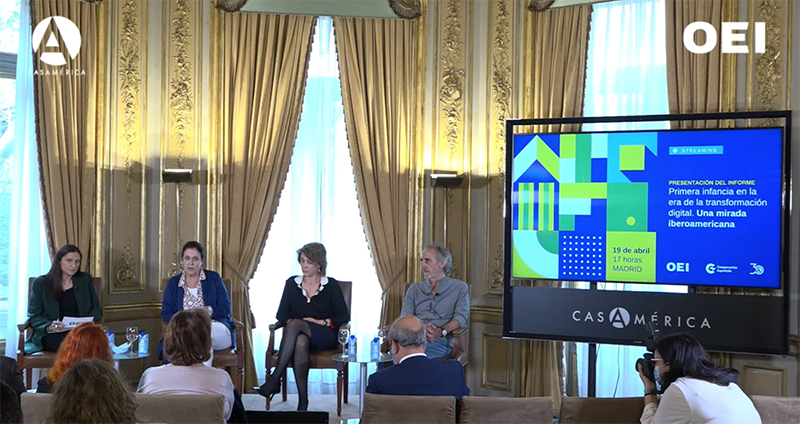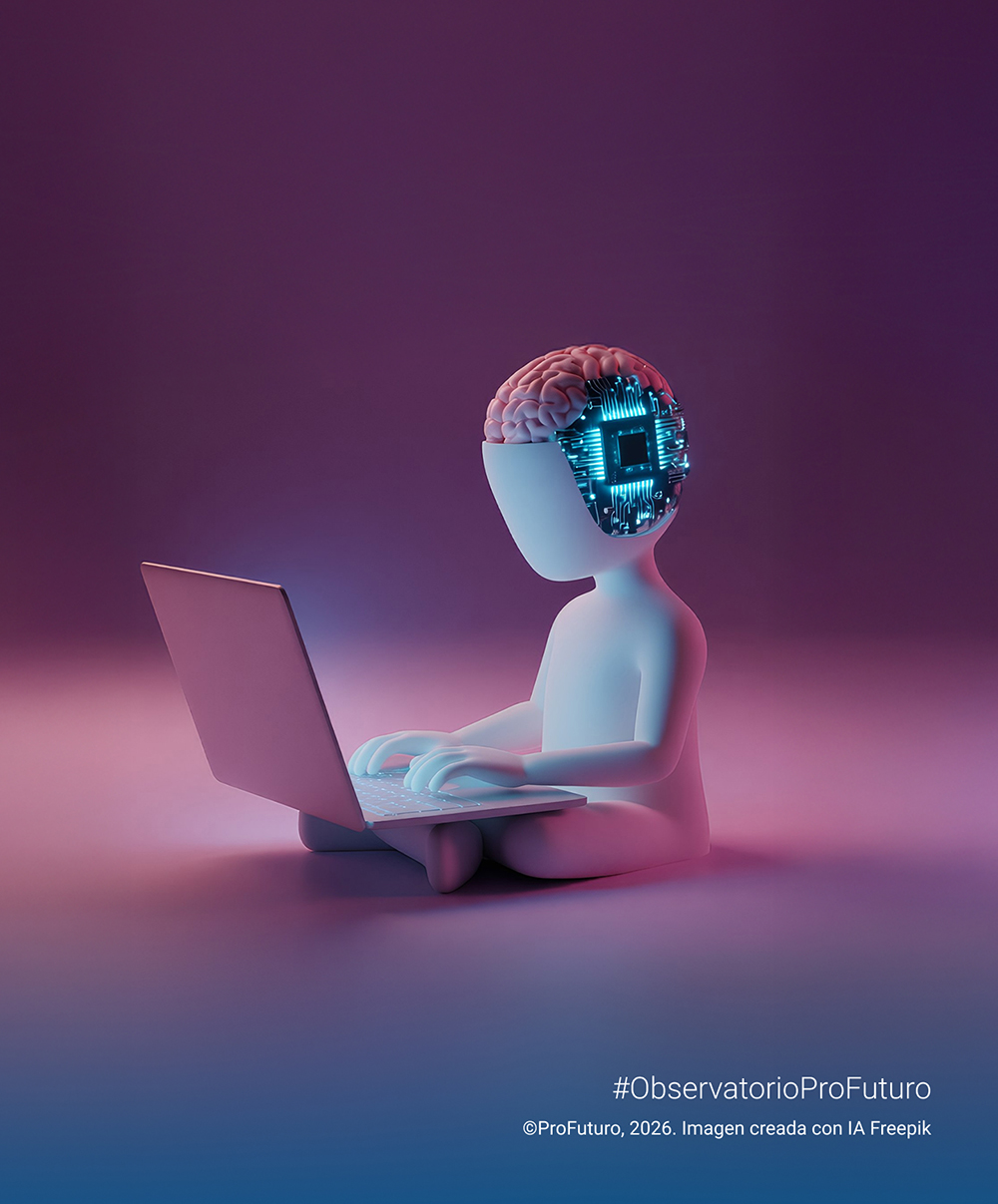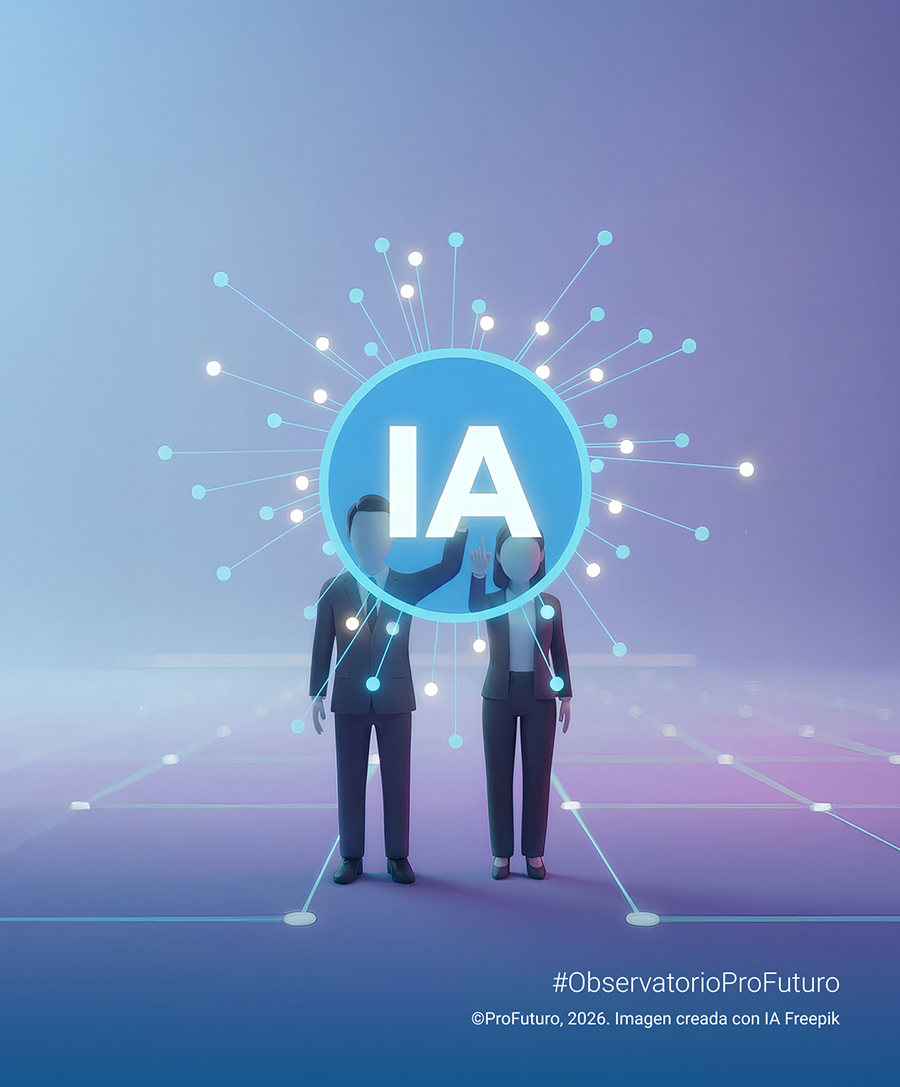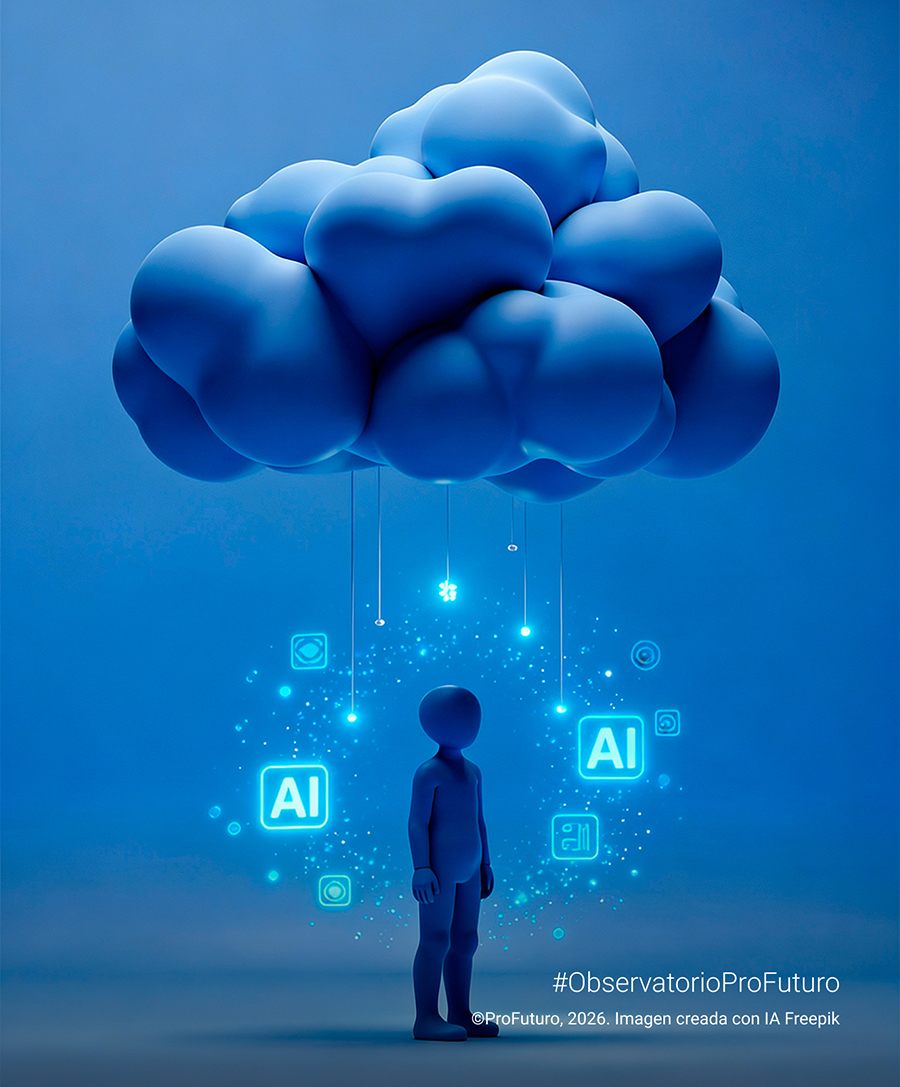The scientific evidence is clear: the early years of life play a decisive role in people’s development. This is certified by the study titled Early childhood in the age of the digital transformation. An Ibero-American perspective, whose basic content and findings we’ve already discussed in this Observatory. This is why working for the benefit of early childhood with a specific and distinctive approach is of transcendental importance. Within this framework, inter-institutional cooperation plays a key role in addressing the challenges of the digital transformation of education during this vital and special stage of people’s lives.
Initiatives like this study, which required the joint efforts of international organisations such as the Organisation of Ibero-American States (OEI), public agencies like the Spanish Agency for International Development Cooperation (AECID), universities such as the University of Talca in Chile and the Autonomous University of Madrid and private sector organisations like the ProFuturo Foundation constitute an excellent example of how this collaboration can drive actions to promote better education for everyone.
“A radical transformation of education”
The irruption of the new technologies into the world of education “isn’t just another electronic wave, like television, the phonograph or cinema”, declared Mariano Fernández Enguita, a professor of Sociology at the Complutense University of Madrid and an expert in educational innovation at the round table that took place during the presentation of the report at Casa de América. “We’re experiencing something completely different, comparable only to the printing press, which radically transformed the world of education and constituted a shift from a handful of schools to an educational system, something very different that took us half a millennium to achieve”. The sociologist took his comparison further by adding that “the digital transformation is the same, but much faster, much more far-reaching, much deeper and much more unpredictable”.
In order to advance through this transformation process in a sustainable and inclusive manner, the cooperation of all the agents involved in the educational process (the private sector, public sector, third sector, etc.) is essential; Fernández Enguita highlighted, for example, the important role the private sector can play when it comes to providing information to the public sector to help it to undertake transformations. In this regard, Magdalena Brier, managing director of the ProFuturo Foundation, highlighted the amazing potential of digital education through artificial intelligence to provide us with “systemic information that promotes, for example, the personalisation of learning”, a process that’s particularly useful in vulnerable environments or contexts in which the students don’t have the same level of maturity.
Teacher training and inter-sectoral cooperation
A fundamental tool in which multi-sectoral collaboration can play a key role, is, as Magdalena Brier emphasised, teacher training. Together, we can define the frameworks and goals, the kind of training in digital skills we want for our teachers, the way of measuring and evaluating these skills and the tools we’ll use to evaluate them.
If you want to find out more about the study titled Early childhood in the age of the digital transformation. An Ibero-American perspective or how multi-sectoral cooperation can promote the digital transformation of education, don’t miss the video presentation of the study.






